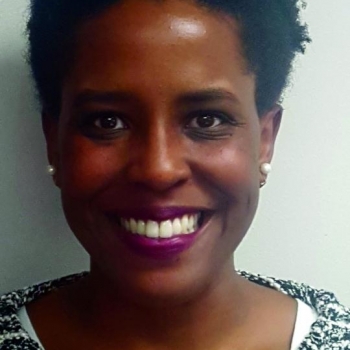Kathryn Evans remembers the day she understood the power of systems to shape people’s daily lives. She was still in graduate school, working as an intern in a social service center that served poor and homeless children and their families.
One of the mothers had taken out a “payday loan” to finance a utility bill; months later, she was still paying more than $200 a month on that loan, stuck in a cycle of renewal and exorbitant interest rates. “She was constantly worried about how she was going to feed and support her children. It woke me up to the fact that there were systemic inequities we needed to address,” she says.
For three years, Kathryn was the lead community organizer at Communities Creating Opportunity in Kansas City, Missouri, a faith-based group whose campaigns have included fair lending, drug policy, livable neighborhoods and housing.
In June 2015 she joined the staff of United Community Services of Johnson County as a project manager where she aims to develop partnerships and systems to reduce poverty in the most populous county in Kansas.
As an organizer, and as a member of the MARC collaborative, Kathryn expects to ask more questions than she answers. “What I consistently strive to do is challenge people’s assumptions about the world as it is, to help ask questions: Why is that person behaving that way? Why are they facing this set of challenges?”
She looks forward to learning other approaches to systemic change, in addition to the grass-roots organizing model she knows best. “I am always looking for creative ways to think about this work, especially when it comes to evaluating and understanding our impact,” she says.
Kathryn also hopes to bring a critical examination of power—power that fuels economic and social systems, power that generates class and racial oppressions and power that must be harnessed in order to create democratic, lasting change.
“In a lot of marginalized communities there’s a narrative of ‘things happen to me.’ I like seeing that light flicker behind someone’s eyes when they realize they are much more capable of controlling the circumstances of their life than they realized.”
